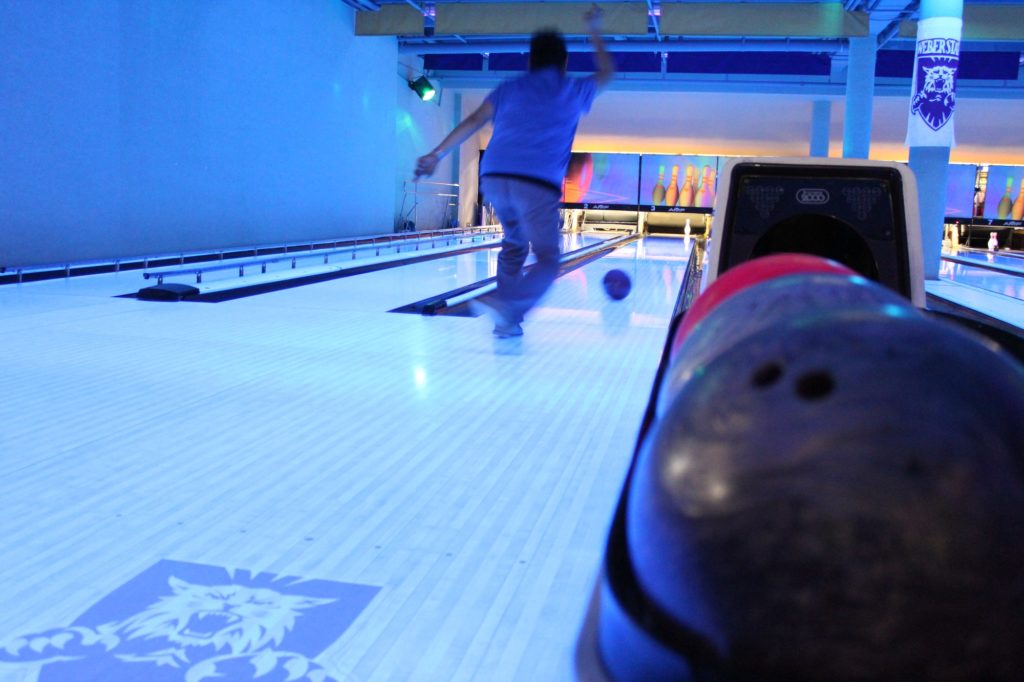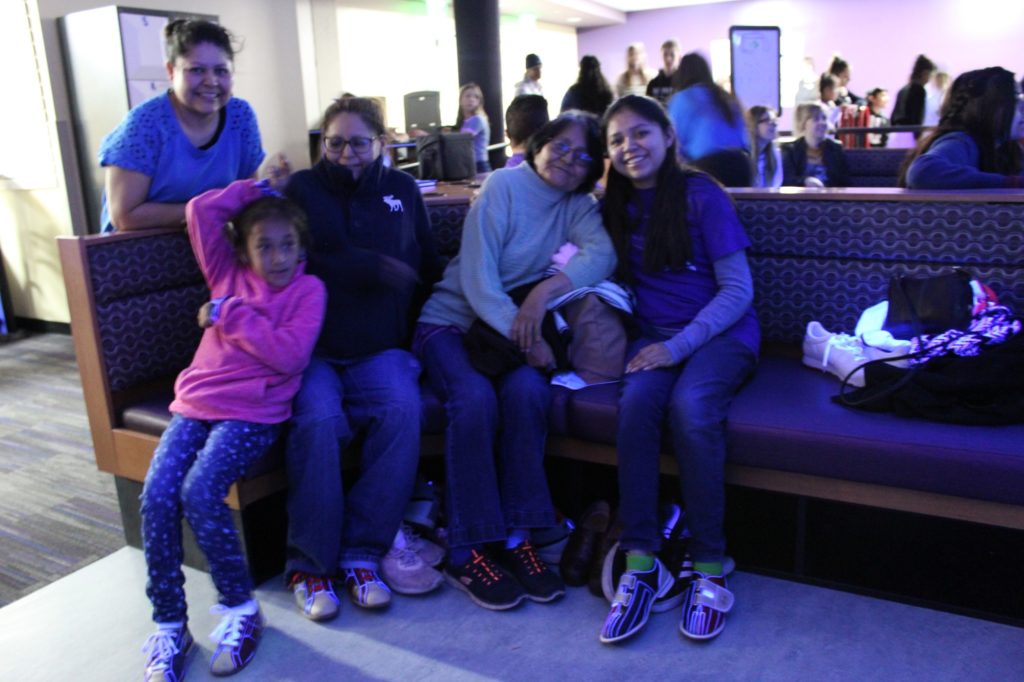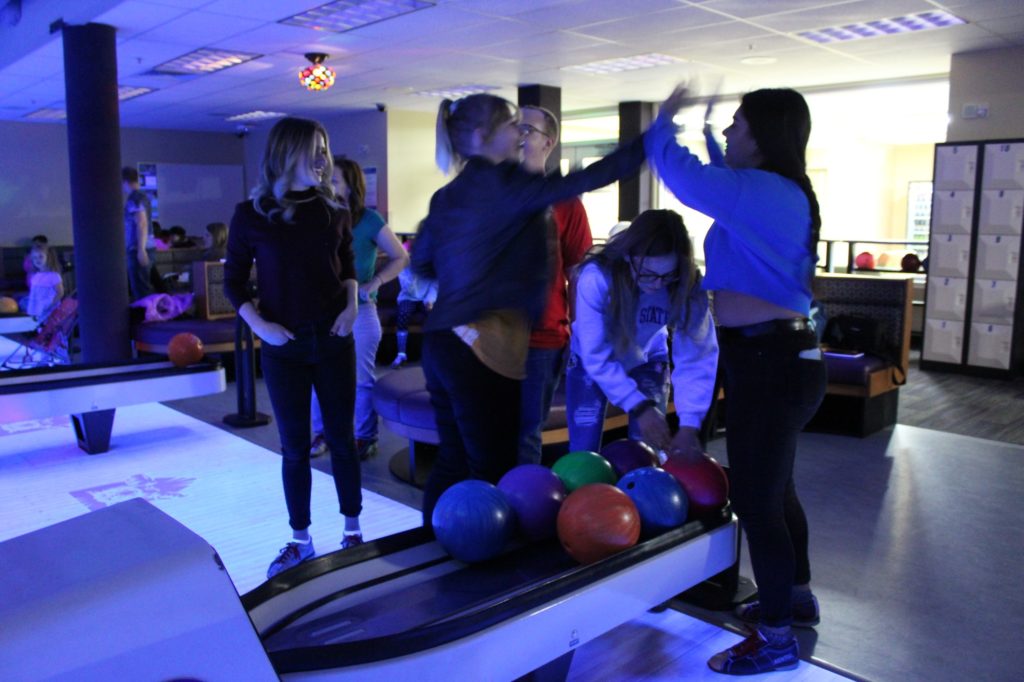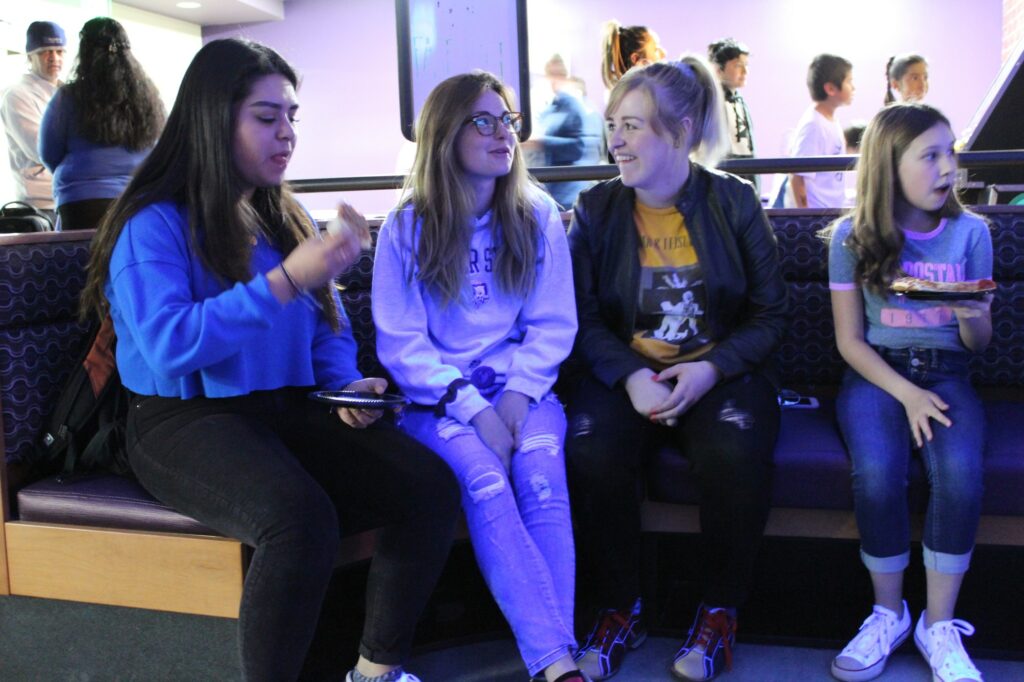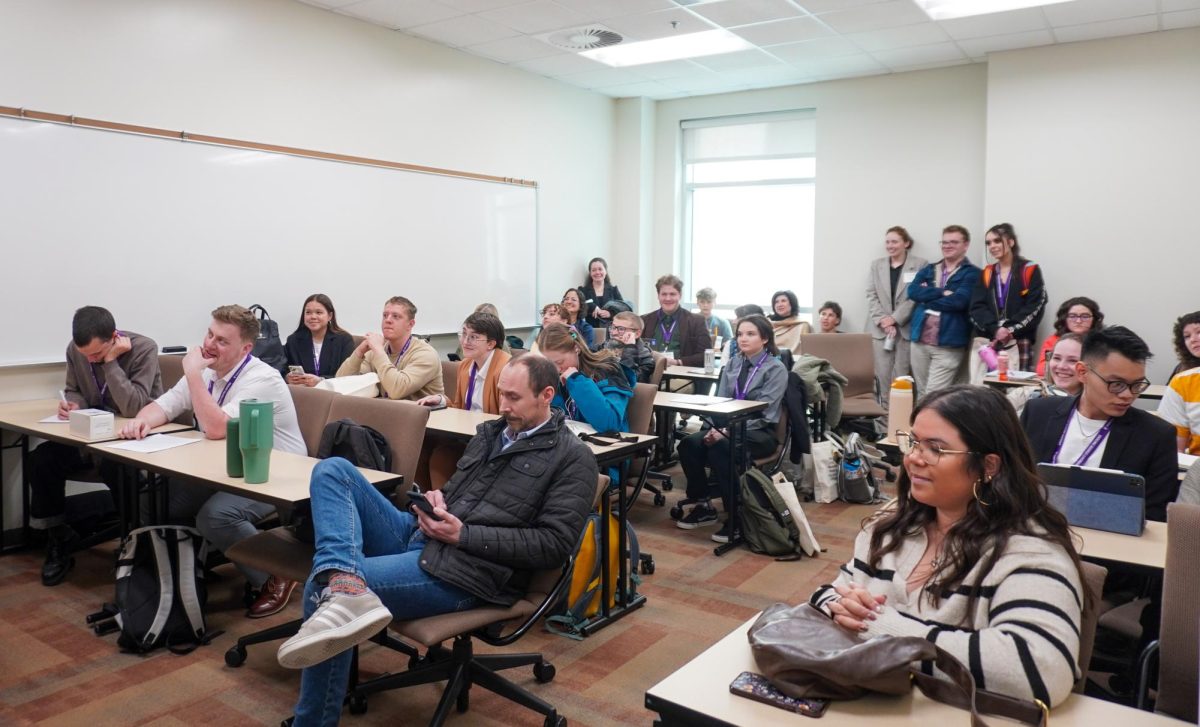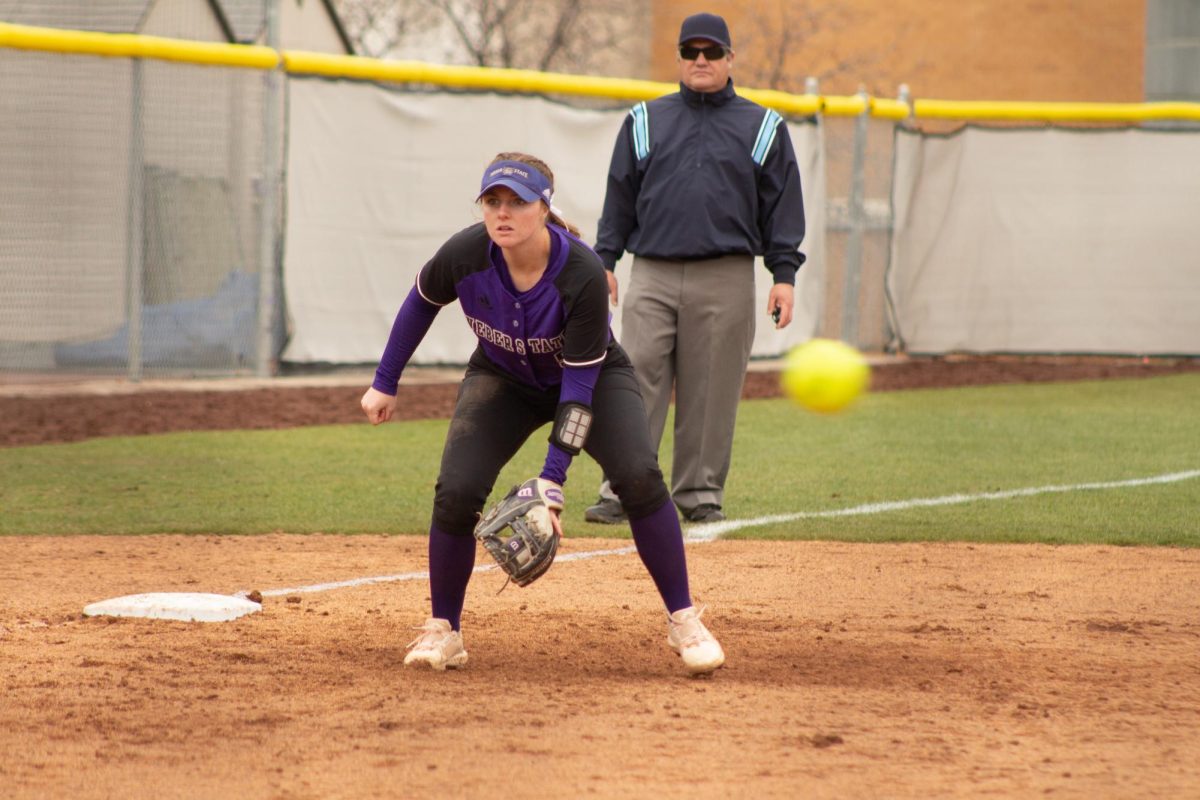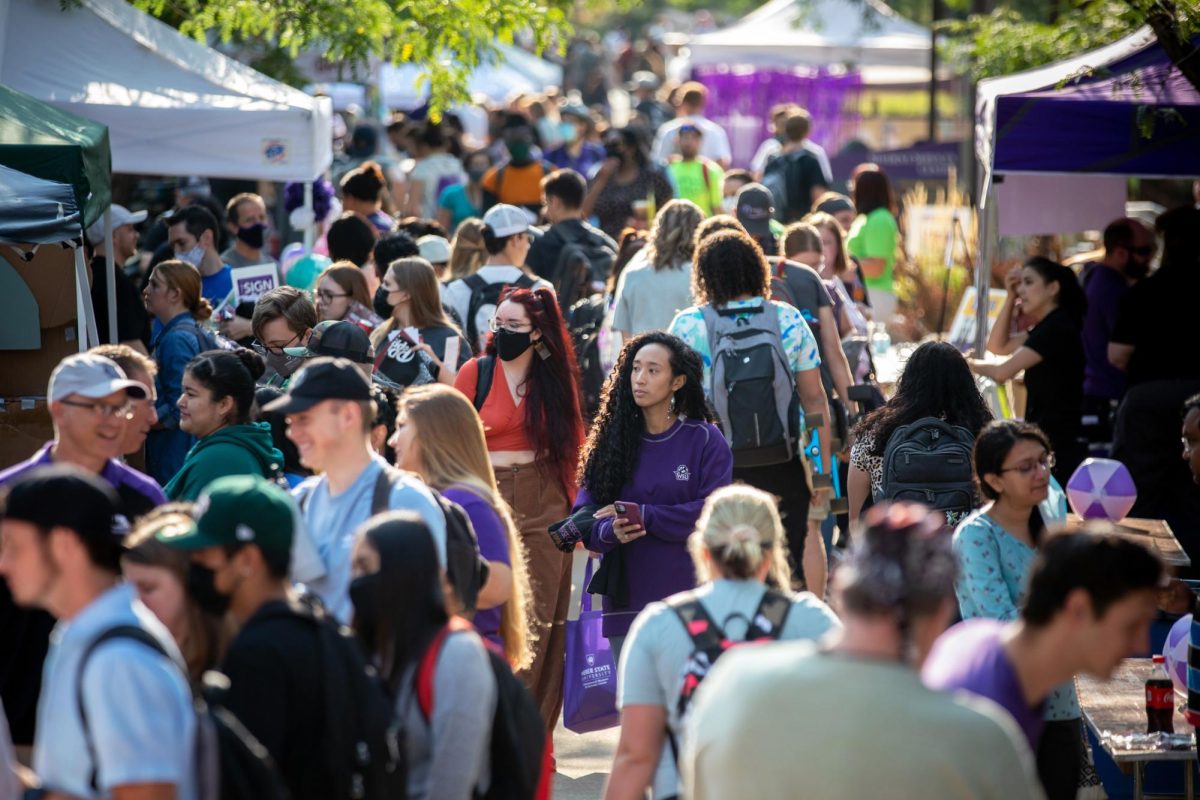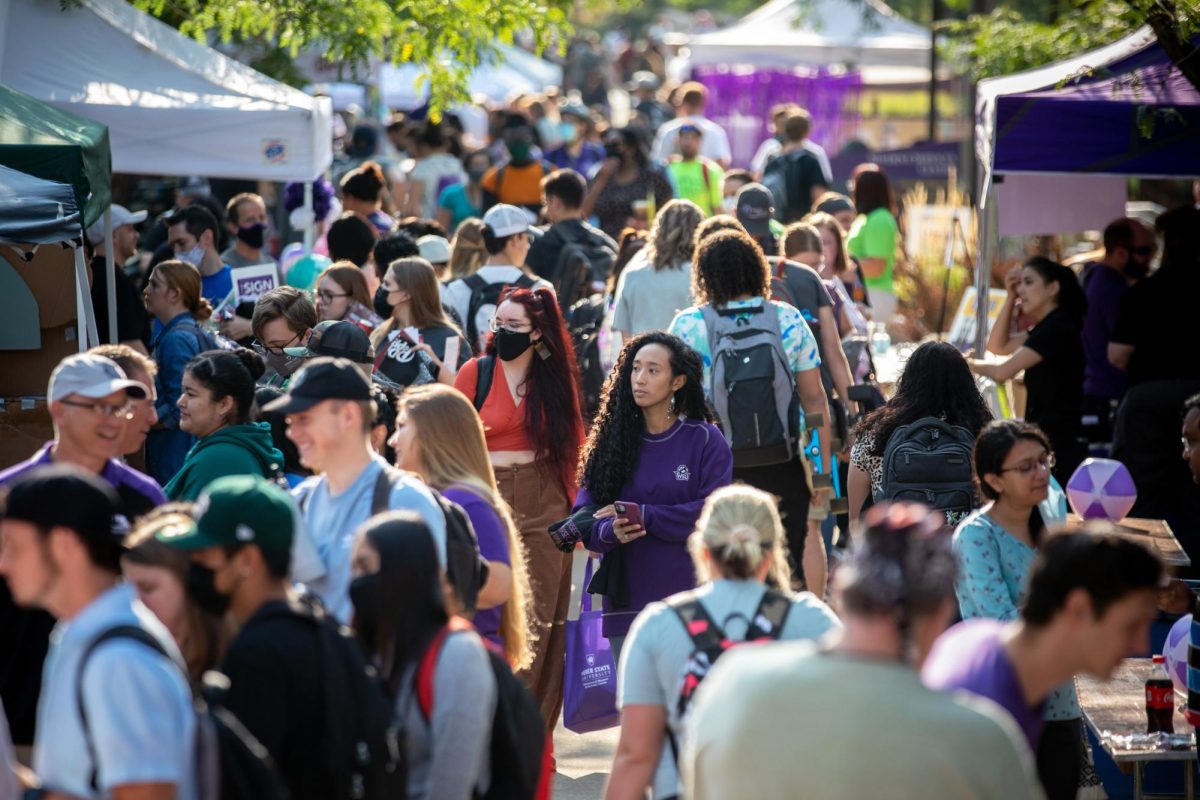First-generation students united to celebrate similarities in being the first in their family to pursue higher education on March 15 in the Wildcat Lanes.
According to Sarah Herrmann, WSU assistant psychology professor, the majority of first-generation students feel intimidated by college because of the unfamiliarity and are deemed most likely not to complete their degree.
However, students who feel more involved in school will be more likely to want to go to school, which is one of the reasons why the first-generation club exists.
“Knowing there is a community of people like you, and that there are alumni, faculty and staff who have also shared those experiences helps you validate that identity,” Herrmann said.
Although first-generation students are more likely to drop out of college, Herrmann said there are a list of skills first-generation students bring to the table, and that is why it is imperative they continue to pursue their degrees.
“They are hardworking and excited to learn,” Herrmann said. “They are in the position of becoming a role model for future generations and obtain the desire to share their successes with their family and community.”
First-generation club member, Kylee Treseder, said being the first to experience higher education in her family is intimidating, but special. She is grateful she can be a role model for her younger siblings and cousins to show them that anyone can accomplish their goals, even if seems unobtainable at times.
“We had a rough childhood, but our mom really held us together. She has an associates degree, so she has always made getting an education one of the most important things,” Treseder said. “Although it is a lot to take on, it is very rewarding.”
According to Laurie Huntington, Davis Testing Services coordinator, the first-generation club’s goal is to help guide students with signing up for classes, applying for financial aid and scholarships and getting them involved with school.
“All the complicated processes involved in college are a lot easier if there are people backing you up,” Treseder said.
Treseder said she wished she had known about the club before she became a junior; not only are resources more accessible to her, she said, but she enjoys going to school with fellow club members.
Besides providing resources, the club organized an alternative spring break to Seattle for club members. Treseder saw a flyer for the opportunity, took it and has built bonds with like-minded students.
“Even though there are over 700 members in the club, I think if more first-years knew about it, they would join because it really is so helpful,” Treseder said. “I used to be very introverted and kept to myself, but this kind of took me out of that.”
Amy Blunck, WSU coordinator of mental health initiatives, said she would like to see more advertising for events.
“I love when we can hold events like this to show first-generations we are visible and accessible to students,” Blunck said. “There needs to be more marketing and outreach to show we are here, and this club offers help to those who need guidance.”
Treseder said she would never ask for help, especially in a setting like college, where most students keep to themselves. Finding the advertising for the alternative spring break provided by the first generation club created an impact on her education and college experience.


